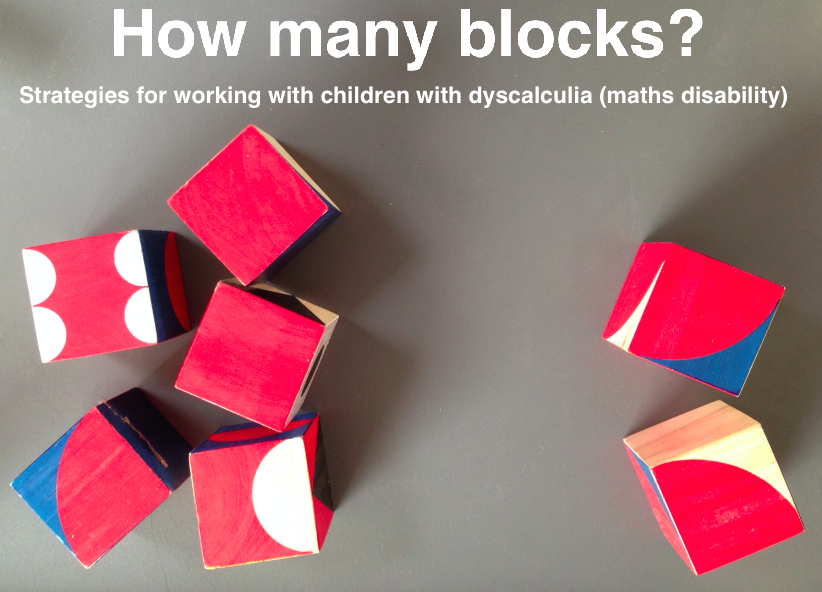
Dyscalculia is a maths disability
May 31, 2023
 Dyscalculia is a mathematics disability
Dyscalculia is a mathematics disability
Do you teach students who struggle with the concept of number and calculating? Do they have poor ‘number sense’? Dyscalculia is a mathematics disability causing significant difficulties with:
- number (size or quantity)
- the relationship of numbers to one another
- a lack of sight recognition and feel for number
- problems with estimation
- learning number facts
- performing calculations
- demonstrating mathematical reasoning.
With mid-year reports upon us, the second half of the year will present the challenge of helping those who experience significant difficulties grasping the size or quantity of a number and the relationship of numbers to one another.
Approximately 3 to 6 per cent of Australian children suffer from dyscalculia. However, many teachers, psychologists, and researchers have known very little about dyscalculia until recent years. Unfortunately, maths difficulties are often not detected until students are 9 or 10 years old when they are significantly behind their peers in mathematics.
Psych4Schools members have access to a ‘Year 2 maths screen’
To counter late detection, the Psych4Schools Year 2 maths screen helps with early identification. It is recommended that teachers administer this 20-question screening tool with individual students identified as ‘just average’ to ‘poor’ in mathematics in the second semester of Year 2. The screen takes about 10 minutes per student to administer. Psych4Schools members can access it in ‘Packages’ (in the ‘Screening tools package’) in the Members area of the Psych4Schools website.
Children with dyscalculia struggle with significant mathematical delays
When compared with peers, benchmarks or standards children with dyscalculia often have a dislike of, and anxiety about, maths and experience difficulties with:
- Naming numbers quickly and accurately
- Learning to count forwards and backwards
- Giving numbers meaning (size, quantity, place value)
- Understanding the relationship of numbers to one another – such as ‘greater than’ or ‘less than’ or ‘the difference between’, as well as using number lines.
- Estimating – size, number, distance, and volume
- Knowing and/or confusing maths signs (+, –, x, ÷ and =), and understanding their meaning
- Understanding and remembering arithmetic facts, maths rules, concepts, and formulae
- Transferring knowledge from one maths area to another or using existing maths knowledge to solve a maths problem.
- Improving maths performance and attainment. They show little or no improvement following repeated instruction or one-to-one assistance.
How can teachers support these students?
- Assess what the student specifically can and can’t do across the mathematics curriculum. Do not assume they have pre-school counting skills or other basic mathematical skills because of their age. A full assessment is fundamental to developing an intervention approach that will assist the child.
- Provide a targeted teaching group. If there is little change over a 6 – 8-week period recommend referral with parent permission for further assessment with a psychologist who specialises in learning disabilities and follow their recommendations.
- Build number sense. These students demonstrate significant difficulties in having a ‘sight recognition’ for quantity and have difficulty understanding the size of a number and its relationship to other numbers. Assist the student to practice recognising quantities to 7 by sight.
- Do a 5-minute daily ‘maths frenzy’ where students privately chart their ‘personal best’ in areas of need such as counting, labelling quantities, completing number lines, learning number facts. The achievement of small goals should be quietly celebrated.
For more information and practical classroom strategies access an excerpt of the ebooklet Working with children diagnosed with dyscalculia (mathematics disability).
A 12-month subscription provides access to all Psych4Schools resources. Join Now.
Not a member and want to purchase an ebooklet? Click here to buy from our Shop.
Thinking about subscribing? Click here for Free Resources for working with children.
Psych4schools members simply click here to access all Psych4Schools resources.
Need further information? Contact me via the website or by email at: info@psych4schools.com.au
Murray Evely, Psych4Schools Psychologist/ Guidance Officer
P.S. Professor Brian Butterworth has a Dyscalculia Screener which highlights students with specific learning difficulties in maths aged 6 -14 years.